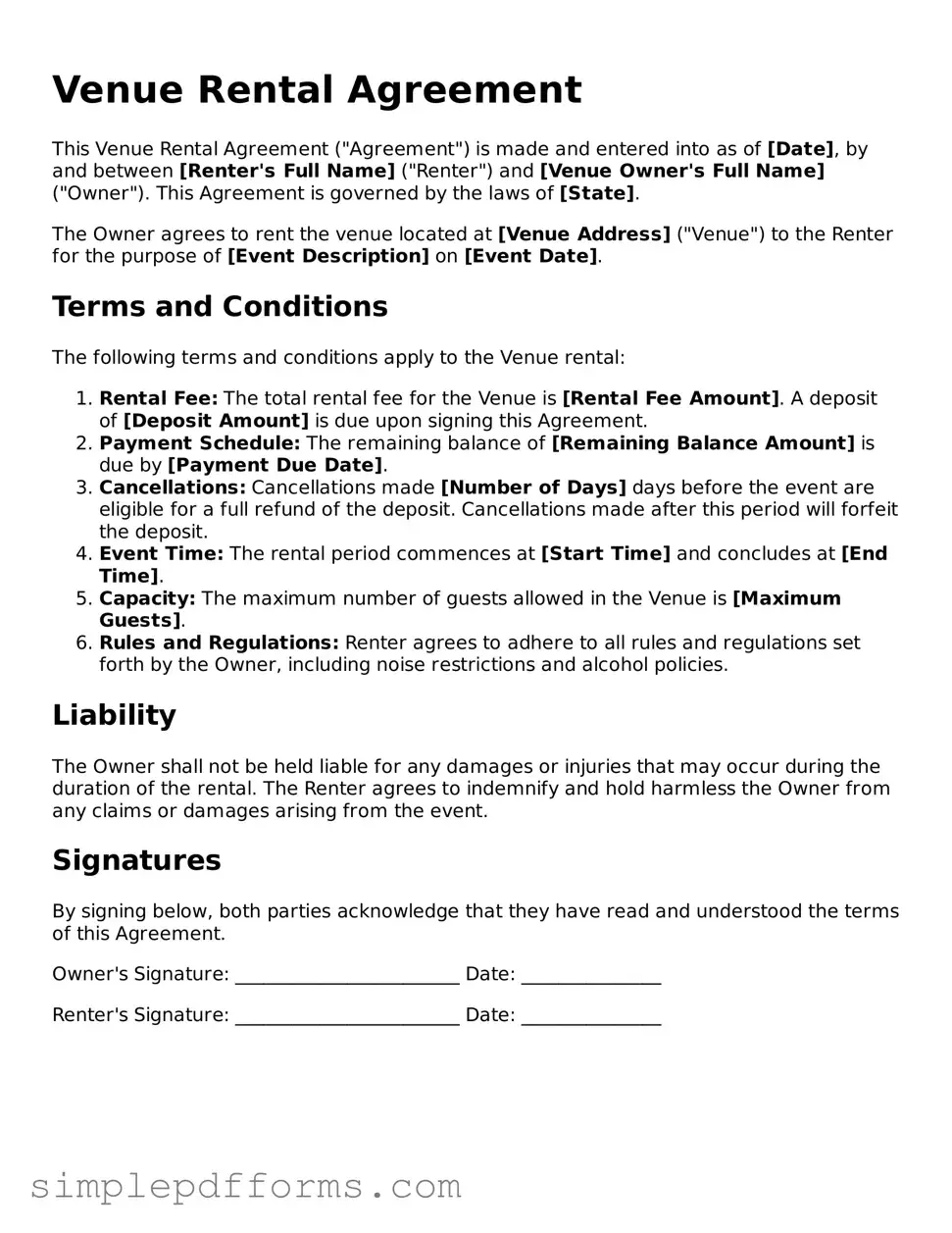Free Venue Rental Agreement Form
A Venue Rental Agreement is a legal document that outlines the terms and conditions under which a venue is rented for events. This agreement protects both the venue owner and the renter by clearly stating responsibilities, payment details, and usage guidelines. Understanding this form is essential for anyone looking to secure a location for an event, ensuring a smooth and successful experience.
Open Venue Rental Agreement Editor Now

Free Venue Rental Agreement Form
Open Venue Rental Agreement Editor Now

Open Venue Rental Agreement Editor Now
or
Get Venue Rental Agreement PDF Form
Your form is waiting for completion
Complete Venue Rental Agreement online in minutes with ease.